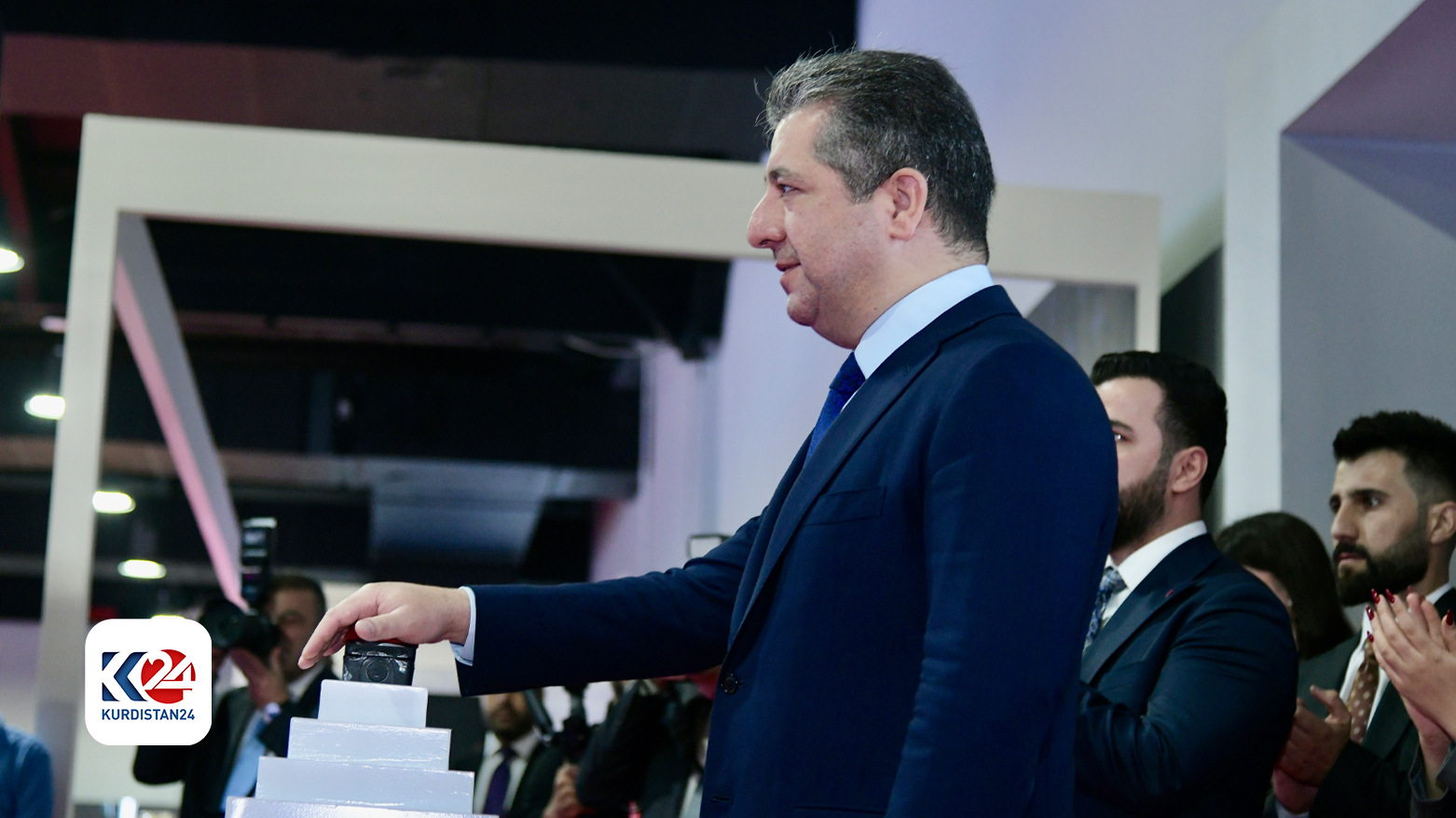Banking services in the Kurdistan Region have expanded fivefold, says PM Masrour Barzani
Prime Minister Barzani in his address at the HITEX24 referred to the “MyAccount” project and the overall status and reform efforts in the banking system in the Kurdistan Region.

ERBIL (Kurdistan24) – On Tuesday, the Kurdistan Region’s Prime Minister Masrour Barzani announced that in the past ten months alone, banking services in the Kurdistan Region have expanded fivefold, underscoring that the banking system and financial services are the main principles of the reform process during the ninth cabinet.
Prime Minister Barzani in his address at the HITEX24 referred to the “MyAccount” project and the overall status and reform efforts in the banking system in the Kurdistan Region.
“I extend my gratitude for your cooperation and support of the "MyAccount" project, which serves as an exemplary demonstration of the initial steps we are taking to restore trust in banks and the banking system,” the Premier stated.
The Kurdistan Regional government plans to register one million salaried employees within the banking system over the course of a year.
Prime Minister Masrour Barzani highlighted that, “I was initially cautioned about the potential difficulties in achieving this within the given timeframe, I am happy to report that we are steadily approaching our objective.”
According to the Premier’s statement, the Kurdistan Region’s banking system is more robust and efficient than ever before, demonstrating commendable growth.
“Thousands of civil servants are no longer burdened with waiting in long queues to receive their salaries. Additionally, procedures for exporting and receiving remittances have been streamlined and can now be conveniently conducted via mobile phones. Moreover, we have installed 200 new ATMs throughout the region, bringing the total number to an impressive 1,000,” he underlined.
The Prime Minister also indicated that there have been over half a million public sector employees integrated into the banking system.
“In the past ten months alone, banking services in the Kurdistan Region have expanded fivefold,” the Prime Minister emphasized.
Regarding the employees who receive their salaries via digitalized means and through the MyAccount project, Prime Minister Masrour Barzani stated, “his month, more than 120,000 employees will receive their payments digitally, and next month, this figure will surpass 200,000, with approximately $200 million deposited directly into bank accounts. Remarkably, private sector banks accomplish this within a single day, whereas the KRG previously required a week and the involvement of numerous accountants to achieve the same outcome.”
Prime Minister Barzani also believed that the heightened liquidity and availability of securities are instilling greater confidence in private and commercial banks, enabling them to extend loans to their partners, both individuals and companies.
The banking system and financial services are the main principles of the reform process during the ninth cabinet.
Prime Minister Masrour Barzani stressed that, “While the banking system and financial services constitute a cornerstone of our reform process, our efforts have not ceased there. Citizens are now conducting a significant portion of their interactions with the government online, a development that enhances speed and efficiency for everyone. We have also established a data and information center that adheres to international standards. Furthermore, the process of registering companies and businesses has been significantly simplified and expedited.”
Prime Minister Masrour Barzani also highlighted the future initiatives of the Kurdistan Regional Government in terms of technological advances, digitalization, and public service development.
“In the forthcoming year, we will be unveiling several additional initiatives poised to revolutionize the daily operations of citizens and businesses. One such initiative involves issuing over 1.5 million digital identity cards. These cards, already initiated under this cabinet, will enable access to a range of public services in the near future. Anticipate a substantial increase in this number next year,” he said.